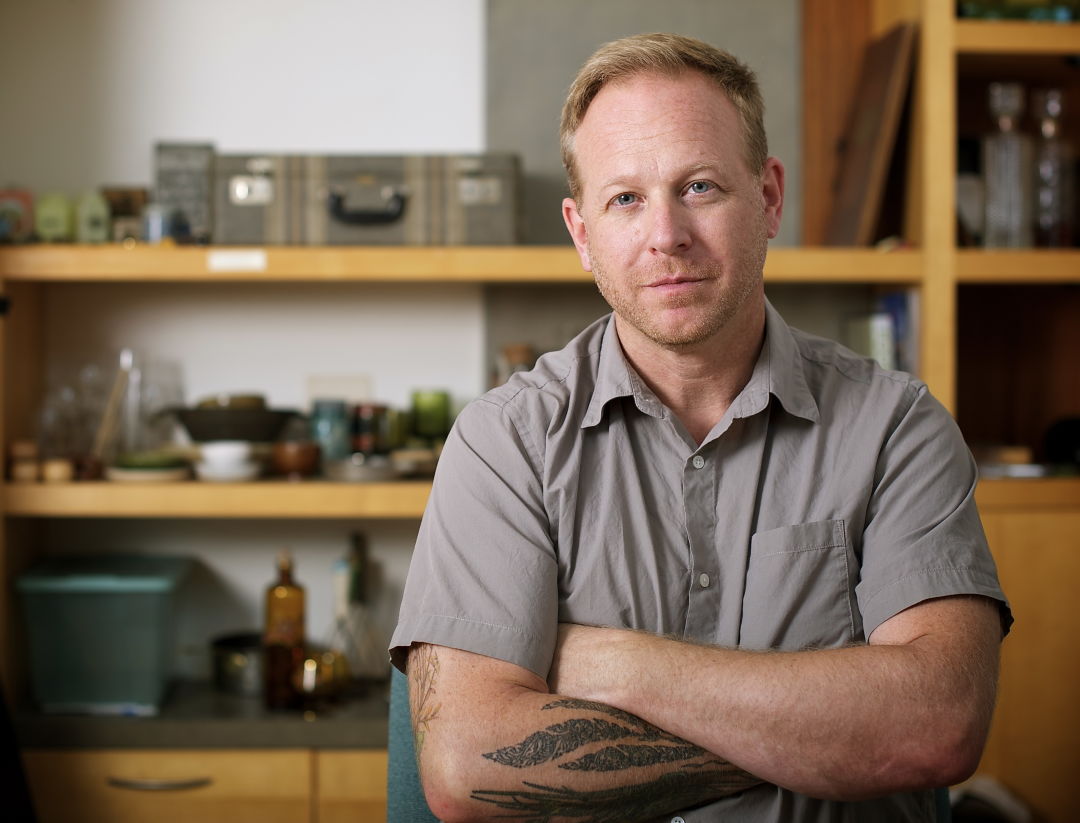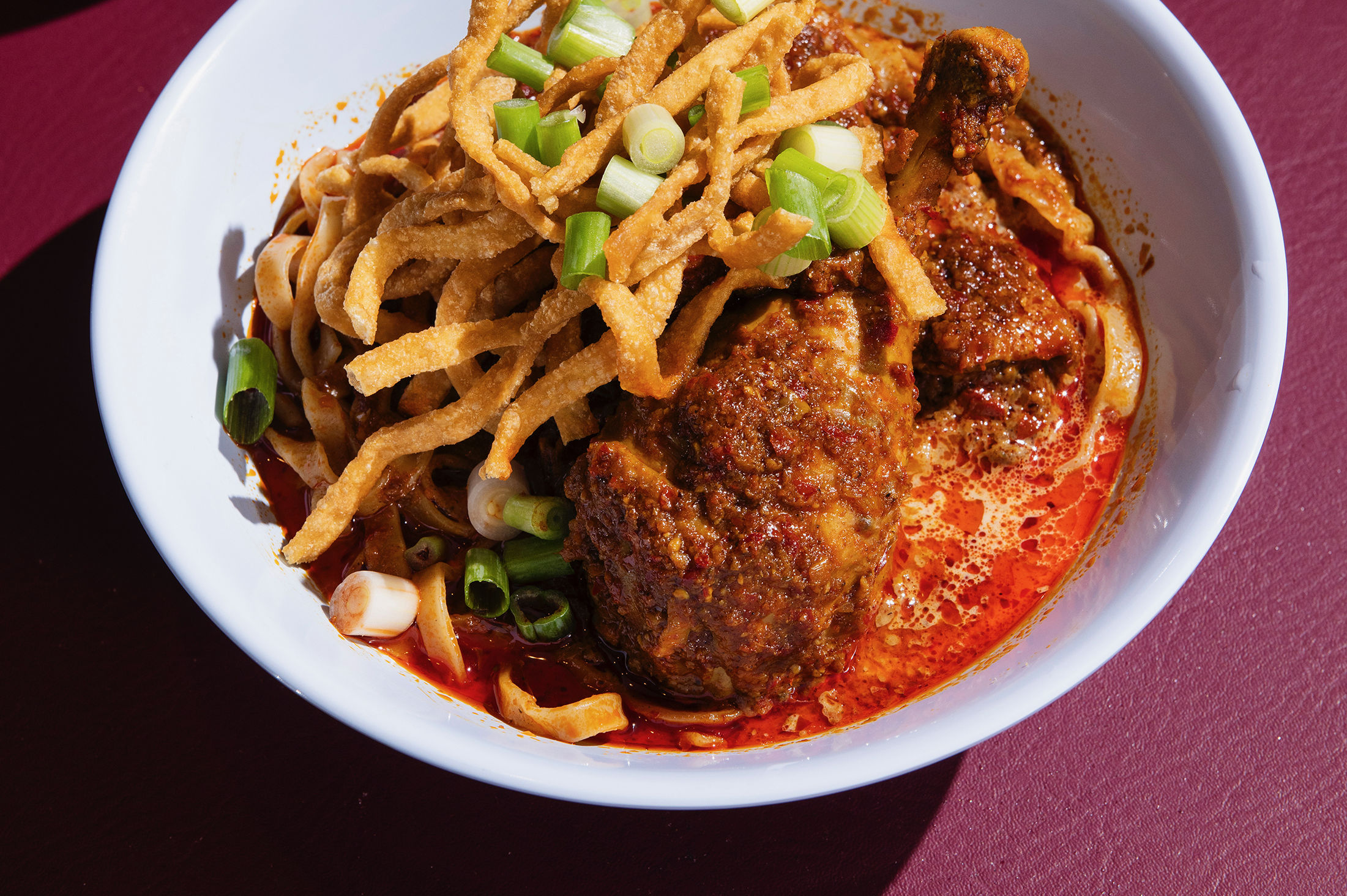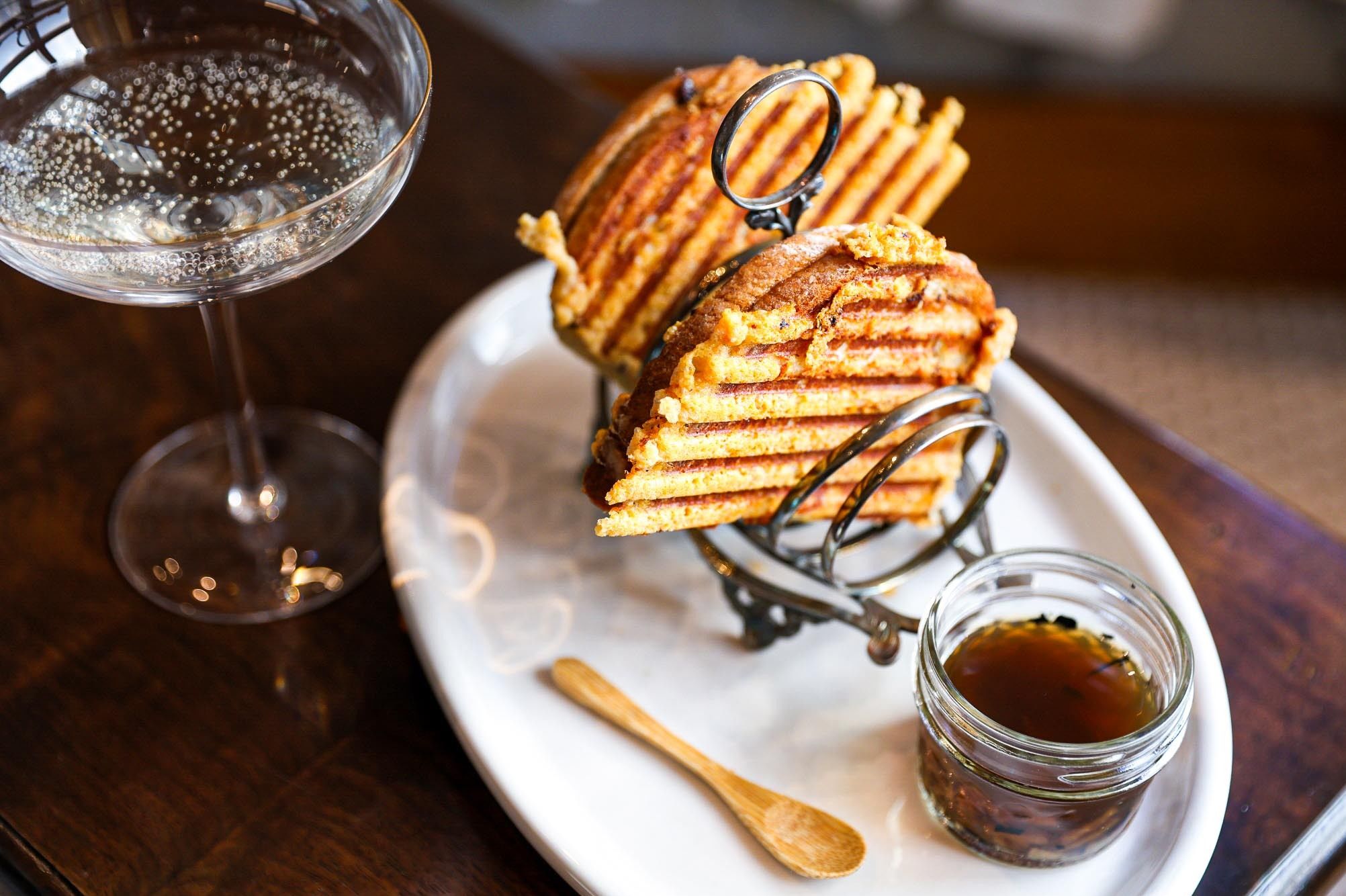Does the World Still Need Pok Pok?

Image: David Reamer
Portland's food world was surprised by Monday's Instagram announcement from Andy Ricker: “With great sadness, we have decided to close Whiskey Soda Lounge, Pok Pok NW, Pok Pok Wing SW and NE permanently. Closures are necessary so that the original PP on SE Division will have a chance to reopen when it is safe and financially tenable.”
Translation: Pok Pok Wing SE may or may not reopen. And the mothership lives, for now. This is the chariot that helped put Portland in America's food conversation in 2007 and fueled Ricker's rise as an esteemed expert and cookbook author on Thai grilling. Currently, Pok Pok is only serving take-out meal kits, ordered online.
All closures are painful, but this one hit home for several reasons: Ricker is not just a national superstar chef, but a savvy restaurateur. When he says the economic costs of Covid-19 are serious, take note: They are serious.
Among the reasons he cites: lack of a cohesive plan for worker safety and no mandatory mask policy. It's not the first time he has sounded a warning. But he's just as adamant now. “Working in a kitchen, in close quarters, is still a pretty fucking unacceptable risk.”
Meanwhile, Whiskey Soda Lounge is a major loss. Since 2010, Ricker's funky DIY surf shack, across the street from the original Pok Pok, stood as a testament to aahaan kap klaem, the joyful world of Thai bar snacks, meant to be eaten with whiskey and rarely seen outside of their home turf. Whiskey Soda Lounge introduced Portland (and much of America) to the concept of “drinking foods,” a genre that helped define Portland's food and drink scene.
He never planned to build an empire. Ricker fell in love with a cuisine in 1992, returning to Thailand over and over, learning the language, studying the food, and telling stories about the people he met. With Pok Pok, he just wanted us to understand why, without concessions to the timid American palate. “Thai food,” he told me in 2007, “is so much more than what we see on menus here in Portland.”
Still, he has grappled with the idea of a white guy cooking Thai food. And in a time of great upheaval, when so much is being reconsidered, he's asking the question: Does the world still need Pok Pok?
Here's Ricker, in his own words, raw and unfiltered, in a deeply reflective phone conversation with Portland Monthly:
“There will be no shortage of restaurant property when we come out of this. If we want to expand again, opportunities will be there. I think about that now. But complete transparency: We weren't doing that great right before Covid hit. We were doing better than last year at the same time. But by no means were we on the climb. We had sustained a climb over 12 years, then went down over the last few years. At the end of the day, the idea that you could simply reopen and things would go back to normal … that's not a good starting point. “Normal” is not good. A lot of issues haven't gone away, things we've talked about for years; there was no point in coming out of this exactly like before.
Another layer to this? How do you come out of this to be sustainable in the long run? To reopen will take a lot of planning, training, a lot of new things we have to do to reopen, in the best scenario.
If nothing else, this gives me more time to contemplate what Pok Pok will be going into the future. To think about how we navigate the new world we're living with, to address things like inequality; to put ourselves in a position where we can charge enough money to make a profit and take care of employees. It's a lot to contemplate.
I kind of see this as a big reset, for the way we go about thinking of every aspect of our lives—business, relationships, the way we vote. It feels like a very big moment, a time of transition and self-examination.
Also, I must ask a bigger question: Should Pok Pok reopen? It's a big question to ponder: Do we have something to say and should we have the platform to say it? These are important questions to ponder.
I have no intention of reopening Pok Pok just for commerce. Of course, that needs to be part of any business plan, but Pok Pok has never been solely about making money. I hope that has been clear. If all we have left to offer is a commercial concern, there's no reason to keep on. If I'm still contributing to the conversation, in a positive way, with value, that makes sense. If that time has passed, OK. I've always said: I want Pok Pok to exist as a place until it's no longer relevant. If not, so be it. I know we can produce food that tastes good. We can deliver a good experience. But I'm talking about raison d'être. Meaning and relevance. I'm not saying that's the case. I have a very compelling life in Thailand, where I live part of the year. My wife is there, and a lot of friends, too. But the business keeps me in two places. Maybe this is a part of a grand reset?
Over the years, I've really tried hard to be respectful of the food and culture we're representing. I've always said, “Don't look at me, look at the cuisine, these amazing people that make it. I am but a student.” I truly believe that I've been coming from the right place. Right now is the time to be thinking about the fact that we live in a world that systemically lowers the value of food that people of color make and raises the value of food that white people make. I've been the recipient of awards, attention, voice, and platform. Unless you're not fucking paying attention, you have got to be having this thought. This is the moment. To be deeply self-critical. Whatever happens, this is not the end.”




